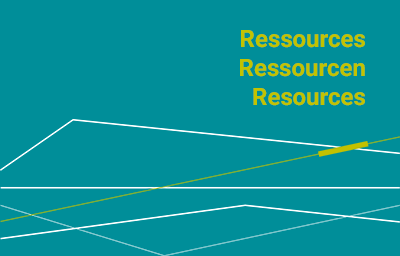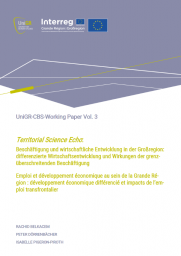Policy Paper Vol. 3
The purpose of this paper is to contribute to the reflection on the role of training in the cross-border labor market. It does so by mobilizing the debates initiated in the different Cahiers de la Grande Région and during a conference debate organized online on December 1 2020 on the topic of "Inequities, Skills, and Training: What Equations for the Cross-Border Labor Market?” More precisely, this contribution aims at answering the following question: how can training and its different practices in the professional fields, but also in school and university education, mitigate the imbalances that are emerging on the labor market of the Greater Region? The document thus proposes a few lines of thought for cross-border cooperation in the field of training.


